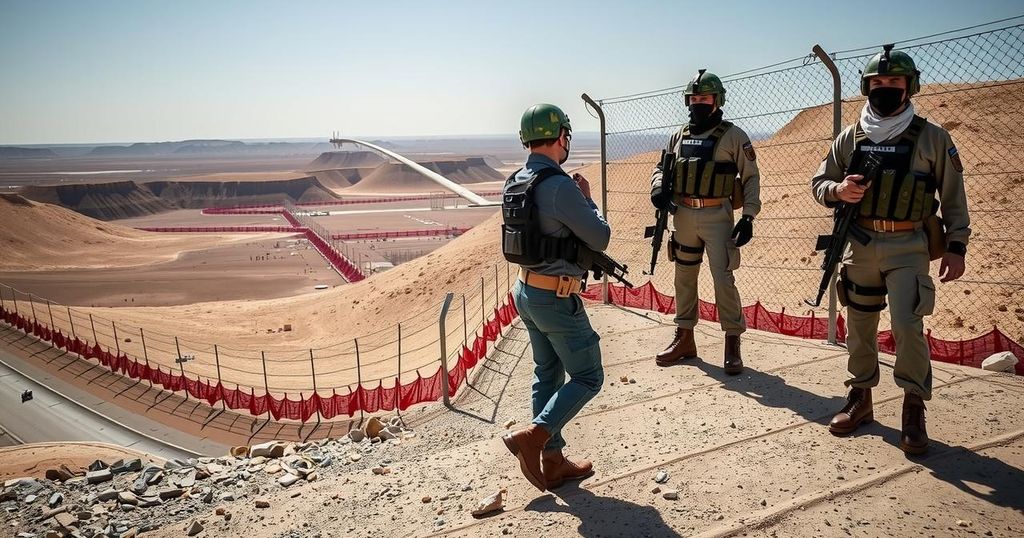Jordan Escalates Military Response to Iranian-Linked Drug Smuggling Threats

Jordan has intensified military operations against drug smuggling networks connected to Iranian militias, particularly Hezbollah. Following violent clashes, Jordanian forces have shifted to a more aggressive approach, including airstrikes on drug facilities in Syria. These actions underscore the critical relationship between drug trafficking and regional instability, as Captagon production presents significant challenges for Jordan and the new Syrian government.
Jordan has escalated military operations along its northern border with Syria to combat drug smuggling networks associated with Iranian-backed militias, particularly Hezbollah. Following violent encounters with armed groups attempting to breach Jordanian territory, the Jordanian military’s aggressive measures included clashes with smugglers and airstrikes on drug production facilities in southern Syria. This represents a significant shift from previous diplomatic efforts to active military engagement, necessitating immediate action to address cross-border crime and security threats.
Military officials assert that these organized smuggling networks are financed by Iran, with drugs and arms trafficking fuelling regional instability. Captagon, an addictive amphetamine, has surfaced as a primary revenue source for these criminal syndicates and militias. The Jordanian government has adopted a “war on drugs” narrative to underline the urgency of border protection. Reports indicate that these smuggling operations are closely linked with Iran’s proxy forces and the Syrian Fourth Division, compounding the challenges both Jordan and the Syrian government face in addressing drug trafficking issues.
A recent security agreement between Jordan and the Syrian government aims to combat these smuggling routes jointly, resulting in numerous raids on drug manufacturing sites once safeguarded by the Fourth Division. Despite these efforts, the vastness of the drug trade and the financial incentives for involved organizations continue to pose significant challenges. Jordanian military officials have emphasized that the operations extend beyond mere border security, framing them as a crucial national security imperative.
The recent increase in Jordanian military operations reflects ongoing concerns about the entwined nature of drug trafficking and militia activities in the region. Iranian-backed militias, including Hezbollah, are known to play a pivotal role in the production and distribution of illicit drugs, specifically Captagon, which emerges as a major funding source for their operations. The situation has been exacerbated by previous affiliations of Syrian military branches that have facilitated drug trafficking activities, particularly during the earlier years of the Syrian conflict. Jordan’s response is shaped not only by the urgency of securing its borders but also by the broader implications for regional stability. The joint efforts with Syria stand as a testament to the seriousness with which both nations view the threat posed by organized crime and militia violence.
In conclusion, Jordan’s intensified military stance against drug smuggling networks linked to Iranian-supported militias highlights the urgent need for heightened security measures in the region. The collaborative approach with the Syrian government aims to dismantle drug trafficking avenues and restore stability along the border. As these illicit networks represent a significant security threat, Jordan’s actions are critical in mitigating the influence of Iran-backed organizations in destabilizing neighboring states.
Original Source: www.ncr-iran.org







